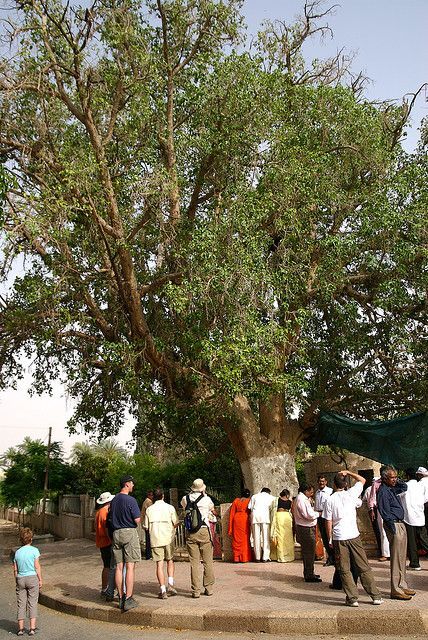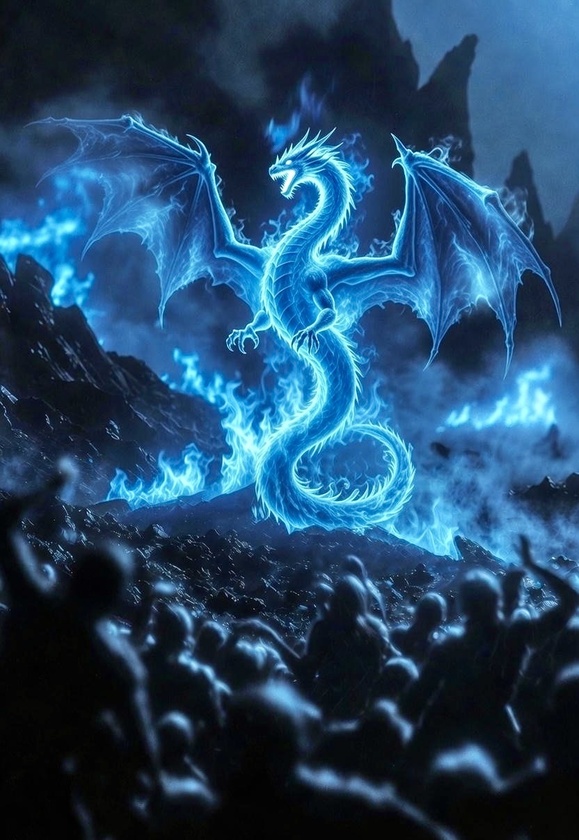Shedding the Old Bark: Zacchaeus, the Sycamore, and a Heart Set Free
Luke 19:2-4
"He [Jesus] entered Jericho and was passing through. And behold, there was a man named Zacchaeus. He was a chief tax collector and was rich. And he was seeking to see who Jesus was, but on account of the crowd he could not, because he was small in stature. So he ran on ahead and climbed up into a sycamore tree to see him, for he was about to pass that way."
As a tree guy, it doesn't go unnoticed by me that Luke included the type of tree that Zacchaeus climbed. The sycamore tree and its exfoliating bark stands out for me. I don't think Luke tossed in a detail like this just for scenery. It’s loaded with meaning if you dig into it. The sycamore tree, often identified as the sycamore-fig in that region, does have this unique trait in which its bark peels away in patches littering the ground with bark flakes and revealing fresh layers underneath. That’s a striking image of renewal. And I've always felt that it fits Zacchaeus’ story perfectly. He's becoming a new man; he's shaking off the old self and underneath is a fresh new self that loves God.
Here’s a guy who’s been wrapped up in a rough exterior, his role as a tax collector, his wealth built on questionable practices, his isolation from the community, he was a Roman collaborator. But his climb up that tree isn’t just about getting a better view; it’s the start of shedding that old life.
Jesus doesn’t just pass by, he calls Zacchaeus down and invites himself over, sparking a total turnaround in this guy’s life.
Luke 19:5
And when Jesus came to the place, he looked up and said to him, "Zacchaeus, hurry and come down, for I must stay at your house today."
Imagine how that must’ve hit Zacchaeus, a guy used to being known for all the wrong reasons, now singled out by Jesus in a way that’s personal and direct. It’s not a vague "Hey, you up there." It’s "Zacchaeus." That alone probably shook him.
Jesus flips that script. He doesn’t wait for an invitation; he inserts himself right into Zacchaeus’ world. That’s the start of the turnaround, the exfoliation we've noted, Jesus is meeting Zacchaeus where he’s at, literally and figuratively, ready to peel back those layers of isolation and shame.
And so, Zacchaeus is so overcome with joy and gratitude that he proclaims his commitment to the Lord and to behaving righteously from now on. And I notice another thing that stands out to me.
Luke 19:8-9
And Zacchaeus stood and said to the Lord, "Behold, Lord, the half of my goods I give to the poor. And if I have defrauded anyone of anything, I restore it fourfold." And Jesus said to him, "Today salvation has come to this house, since he also is a son of Abraham."
What stands out isn't the extravagant joyful giving attitude that Zacchaeus adopts, I noticed something that's stated here that wasn't in a similar encounter. Remember back to the encounter between Jesus and the rich young ruler.
Two encounters with Jesus, two wealthy men, but two wildly different outcomes. Zacchaeus’ response in verse 8 is explosive. He stands up, there’s a sense of resolve in that, and he calls Jesus "Lord," which is already a shift from a guy who was just curious enough to climb a tree. Then he lays out this radical plan: "Half of my goods I give to the poor," and if he’s cheated anyone, he’ll pay them back fourfold. That’s not just pocket change! In the Jewish law, restitution for theft was typically the amount stolen plus a fifth (Leviticus 6:5), or double in some cases (Exodus 22:4). But fourfold?! Wow...this guy is serious. But don't be too impressed, it's still probably coming out of his excess. Even so, that’s Zacchaeus going way beyond what’s required, showing a heart that’s not just repentant but overflowing with a desire to make things right. He’s not clinging to his wealth anymore; he’s letting it go to bless others.
And then comes the thing I picked up on. Jesus declares,
"Today salvation has come to this house, since he also is a son of Abraham."
Now, flip back to the rich young ruler, also a son of Abraham, in Luke 18:18-23. That guy asks Jesus what he must do to inherit eternal life, and Jesus tells him to sell everything, give to the poor, and follow him. The ruler walks away sad because he’s too attached to his wealth. Jesus doesn’t chase him down or soften the call, he lets him go. The contrast is stark. The rich young ruler hears the invitation and clings to his stuff; Zacchaeus hears Jesus’ presence in his life and starts giving it away without even being asked.
The contrast between Zacchaeus and the rich young ruler shines a spotlight on what God’s after in these stories. It’s not just about wealth or even the act of giving it away; it’s about the heart behind it all. It's about what we desire, what we admire, and what truly matters to us. The rich young ruler comes to Jesus with a question about eternal life, and he’s got a solid spiritual resume, he's kept the commandments, he's lived a good life. But when Jesus zeroes in on his wealth and says, "Sell everything, give to the poor, and follow me," the guy can’t do it. His riches aren’t just stuff to him; they’re his security, his identity, maybe even his pride. He’s not unwilling to do good; he just can’t let go of what’s got a hold on him.
And you know what's really sad?
He knows it. The rich young ruler’s sadness shows he knows it. The ruler’s wealth isn’t the problem, Zacchaeus's story proves that; it's the grip it has on him that makes his story so miserable.
Zacchaeus isn't calculating his salvation like the rich young ruler was. It never even comes up until Jesus offers the affirmation for everyone to hear. When Jesus calls him down and enters his home, Zacchaeus doesn’t wait for instructions. He’s so overwhelmed by Jesus’ presence that he blurts out his extravagant plan. It’s not calculated; it’s a heart spilling over. He’s not clinging onto his wealth anymore because Jesus has already become more valuable to him. That's really all that Jesus wanted when he told the young ruler to follow him. God’s looking for that same thing here: a heart that responds to Him with trust and joy, not just obedience out of duty.
Gods after a posture that says, "You’re enough for me," whether that means letting go of riches or anything else we lean on.
Okay, so I think we've figured this thing out.
But what about the last verse in this story?
Luke 19:10
"For the Son of Man came to seek and to save the lost."
This is Jesus dropping the mission statement of his whole life right after Zacchaeus’ transformation. It’s not a random tagline; it’s the heartbeat of everything we’ve just seen. Zacchaeus was lost, not just physically up in a tree or lost in the crowd, but spiritually and socially too. He’s the poster child for someone who’s gone astray. Yet Jesus doesn’t wait for Zacchaeus to figure it out or clean up his act.
The rich young ruler was lost too, in his own way, tangled up in his wealth and religious performances. Jesus sought him out with that invitation to follow, but the ruler couldn’t take the lifeline. Zacchaeus, though? He holds on with both hands.
It’s like Jesus is saying, "This is who I am, and this is what I do." Turning a greedy outcast into a generous son of Abraham in a single day. Jesus isn't coming to pat the righteous on the back, he's come to chase down the ones who’ve wandered off, the ones who don’t even know how lost they are until he shows up.
When you read about Jesus seeking to bring salvation for those lost in their stuff, does it feel like a promise or a challenge?
I’d say it’s both, depending on where you’re standing. It’s a promise because it’s Jesus doing the seeking, not us. He’s the one climbing into our messy lives, calling us by name, like he did with Zacchaeus. You don’t have to have it all together; he’s already on the move toward you. That’s comforting, salvation isn’t about us chasing him down but him finding us, even when we’re tangled up in our own trees.
But it’s also a challenge because it asks something of us, doesn’t it? Zacchaeus didn’t just stay in the tree, admiring Jesus from a distance. He came down, welcomed him in, and let that encounter flip his whole world upside down.
But I think it's a promise first. Zacchaeus heard Jesus was coming, and what he knew about him drew him to Jesus. Zacchaeus didn’t climb that sycamore tree out of nowhere; something he’d heard about Jesus pulled him there. Maybe it was whispers among the crowds of miracles or talk of this teacher who didn’t play by the usual rules, or just a gut feeling that this was someone worth seeing. Whatever it was, it was enough to get a guy like him; short, rich, despised, to hustle ahead of the crowd and scramble up a tree. That’s the promise at work: Jesus is coming, and what you’ve heard about him is enough to stir something, to make you move toward him before you even fully understand why. That's the seed of faith beginning to germinate in him.
Zacchaeus didn’t climb that tree with a full-grown theology or a polished plan; he had just a flicker of something, curiosity, hope, maybe a whisper of longing, that Jesus was worth seeking out. That’s all it took for the seed to take root. What he’d heard about Jesus, however vague or incomplete, it was enough to get him moving, to position him where Jesus could find him. And once Jesus called his name, that seed sprouted into a wild, joyful response of giving and restitution.
Just a nudge, a "maybe this is real," and Jesus meets that kind of faith with everything he’s got. We see him doing this time after time. Take that woman who touched his cloak in Luke 8:43-48, she’s a perfect example. She’d been bleeding for twelve years, spent all she had on doctors, and was probably at the end of her rope. She didn’t even approach Jesus face-to-face; she just thought, "If I can touch the edge of his garment, maybe that’ll be enough." That’s barely a whisper of faith, it's more desperation than confidence, but Jesus stops everything. Power goes out from him, he feels it, and he seeks her out in the crowd. Not to scold her, but to affirm her: "Daughter, your faith has made you well; go in peace."
Think of the centurion in Luke 7, too, just a word from Jesus was enough for him, and Jesus marvels at his faith. Or the thief on the cross in Luke 23, with nothing but a plea, "Remember me," and Jesus promises him paradise. Time after time throughout the gospels, it’s not the size of the faith that matters; it’s that it’s aimed at him. He takes that seed, that flicker, and runs with it.
"For the Son of Man came to seek and to save the lost."
That's the mission.
Just as a side note: I think it's funny that today crowds come to see and visit the Sycamore fig tree that Zacchaeus climbed in Jerico. It's ironic, crowds sent him there, now they come to see his tree. People are funny. I imagine the ghost of Zacchaeus up in that tree again shouting at them, "Hey, get off my lawn!"




















